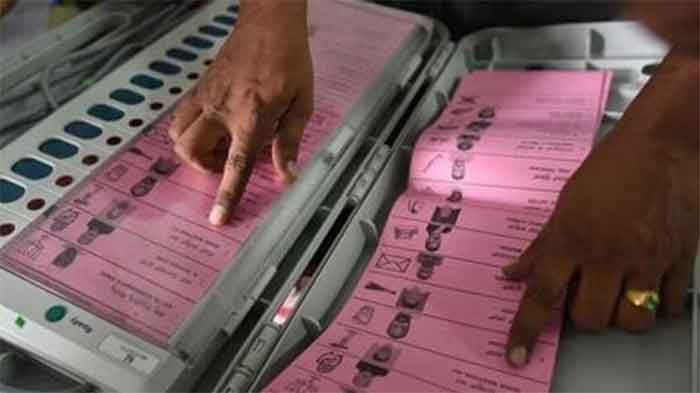
In recent years, the use of Electronic Voting Machines (EVMs) has become a contentious issue in democracies around the world. While these machines were introduced with the intent of streamlining the electoral process, concerns have been raised about their impact on the democratic principles of transparency, accountability, and the sanctity of the voting process. This article delves into the reasons why some argue that elections through EVMs may be against the core tenets of democracy.
While electronic voting machines (EVMs) have become a staple in our elections, concerns about the voter-machine interaction and the reliability of the electronic voting system persist. In light of these issues, I propose a simplified approach to voting that addresses the challenges posed by current technology.
India’s adoption of Electronic Voting Machines (EVMs) was initially driven by the goals of cost reduction in paper ballot printing and faster counting. However, concerns have arisen over the escalating cost per unit and the limited shelf life of EVMs. Despite claims of faster counting, the process of electronic or paper ballot counting has often taken an entire day, raising questions about the efficacy of the faster counting argument.
Challenges with EVMs:
From its inception, EVMs faced allegations of tampering and security-related issues. Technical experts demonstrated that EVMs, essentially computers with clocks, could be manipulated through malware, rigging devices, and software programs. The vulnerabilities extend to manufacturing, transport, storage, and the polling booth. The Election Commission of India (ECI) introduced Voter Verifiable Paper Audit Trail (VVPAT) systems in 2014 as a response to these concerns. However, experts argue that VVPAT alone does not address the underlying issues, as it primarily serves to verify a cast vote.
Lack of Transparency:
One of the primary criticisms against EVMs is the lack of transparency in the voting process. Unlike traditional paper ballots where voters physically mark their choices, the inner workings of electronic machines are often considered opaque. Citizens may find it challenging to understand how their votes are being recorded, stored, and counted within the electronic systems, raising questions about the integrity of the entire electoral process.
Vulnerability to Hacking:
Security concerns regarding EVMs have been a focal point of criticism. Skeptics argue that electronic systems are susceptible to hacking, manipulation, or tampering, which can compromise the authenticity of election results. The fear of foreign interference or domestic malfeasance raises doubts about the reliability of EVMs in safeguarding the democratic process.
Weaknesses in ECI’s Arguments:
While the ECI contends that EVMs are tamper-proof, their admission that high-tech skills and physical access are required for tampering weakens their stance. This acknowledgment inadvertently supports the theory that EVMs could be compromised with the right skills and access. The human error factor further complicates matters, as handlers at various levels are susceptible to corruption or mishandling.
Human Error in Handling:
Even if EVMs were theoretically invincible, the “Human Error” factor remains unavoidable. Handlers at different levels – from manufacturing to polling booths – are not immune to temptations, creating a potential risk of compromise. The EVM engineer/technician, with access to the software code during installation, becomes a critical figure whose actions can impact the fate of candidates and compromise the votes of hundreds and thousands of voters.
Need for Safeguards:
The introduction of VVPATs does not guarantee security, especially as simultaneous parallel counting of votes in EVMs and VVPAT slips is not mandated for all polling booths. In the absence of this safeguard, the voter’s power to guarantee the safety of their cast vote is compromised until the end of the election process.
Advocacy for Paper Ballots:
In contrast to electronic systems, paper ballot systems offer voters the ability to physically see and cross-check their votes during or after counting. Advocates argue that returning to paper ballots is essential to safeguarding democracy, especially considering the potential manipulation of votes at various stages of the election process.
The final thoughts
While EVMs were introduced with the intention of enhancing the efficiency and accuracy of the electoral process, concerns about their impact on democracy persist. The lack of transparency, vulnerability to hacking, limited auditability, technological glitches, accessibility issues, secrecy of the vote, and declining voter confidence all contribute to the debate surrounding EVMs and their compatibility with democratic principles.
As technology continues to evolve, it is essential to address these concerns through rigorous security measures, transparent practices, and ongoing public engagement. Striking a balance between technological advancements and democratic values is crucial to ensuring that elections remain a fair, accessible, and trustworthy expression of the people’s will.
Mohd Ziyauallah Khan is a freelance content writer based in Nagpur. He is also an activist and social entrepreneur, co-founder of the group TruthScape, a team of digital activists fighting disinformation on social media.”











































